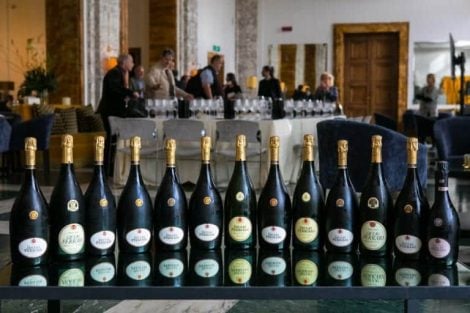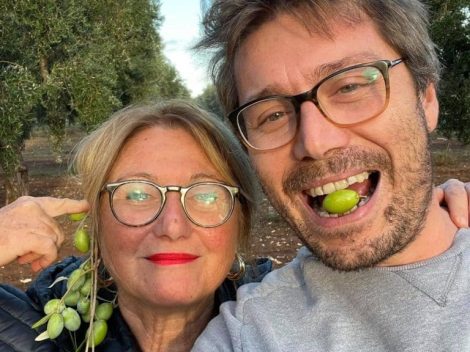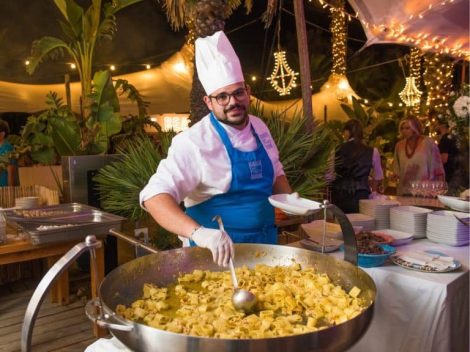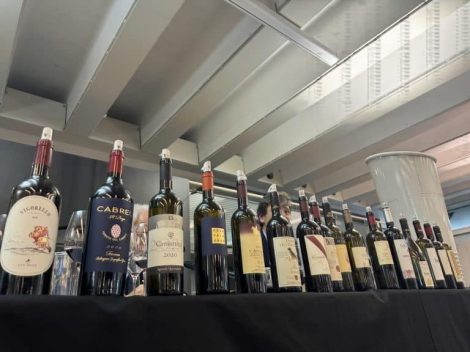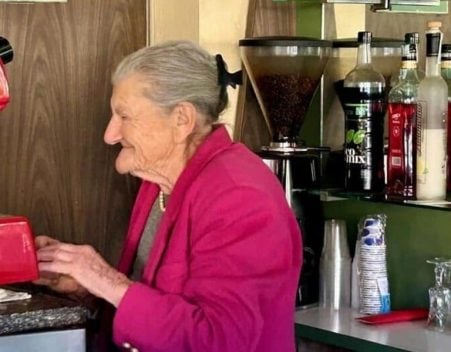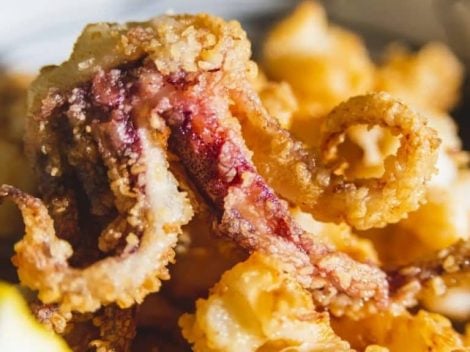He left the majority of Rolland Consulting in Bordeaux in 2021. He has developed several projects around the world: in Argentina "Clos de los Siete", "Mariflor" and "Val de Flores"; in South Africa "Bonne Nouvelle". He is the benchmark oenologist of the last decades of change in which he has contributed to the evolution of viticulture and oenology as we know it today. A genius for some, a 'simple' standardiser of taste for others, Michel Rolland is a charismatic figure in the fine wines market. From Bordeaux, his homeland, his influence has spread to all continents. Today, Rolland Consulting is a structured company, with state-of-the-art laboratories and a team of top technicians that enable Michel to sign hundreds of great wine labels in every wine region - or almost every wine region - in the world. But his fortunes began in the United States in the 1980s, with the enthusiastic reviews of his Bordeaux wines by a young critic, Rober Parker Jr.

Michel Rolland and his wife Dany at Château Fontenil in 1986, year in which they buy the famous vineyard of Fronsac
The interview: Michel Rolland answers our questions
We start at home. You are the most famous oenologist in Bordeaux. But the Bordeaux model seems to be in crisis... In recent times, not very reassuring news has been arriving, there is talk of overproduction, of plans for substantial explantations of vineyards...
Bordeaux is one of the most important appellation territories, if not the most important in the world. We are talking about 115,000 hectares of vineyards. Obviously in Bordeaux there are problems. In Bordeaux, there are 'haute de gamme' wines, which do not have difficulties, on the contrary... On the contrary... Then there is more mass production - and here we are talking about 6 million hectolitres - the mid-range wines, then the wines for mass consumption. For medium and low-medium range wines, there is not a big clientele today, because the commercial marketplace in Bordeaux is not interested in them. The maison de négoce, the traditional intermediaries between producers and the market, are more interested in wines such as Masseto, Ornellaia or Sassicaia because they make higher margins on these, they sell more expensively, and the négociants are not interested in wines where they cannot make a high profit, unlike in the past when even these wines went through the négoce. The second problem is that nowadays wine is made all over the world, and the average quality has grown enormously on a global scale, so Bordeaux's spaces have shrunk... In the past, these wines benefited from the image of Bordeaux, of the great Chateaus, but today this is no longer enough, because Italy, Spain, the United States, South America, for example, make many good wines and have entered into competition.
It is not a question of Bordeaux style or Burgundy style, then...
No, I don't think so.
Perhaps international wine critics have also played a role in this, in recent years there has been much more talk about Burgundy than Bordeaux, don't you think? Is Bordeaux still at the centre of the wine world?
Critics' taste has evolved; critics - who have a direct relationship with consumers, and influence their choices - are moving towards wines that can be drunk young; today people drink faster, and the market of collectors who put wine in the cellar to age it, and can wait, is shrinking. This is a trend we see in France with Burgundy, but also in Italy where wines like Barolo and Barbaresco are emerging, thanks to the expressive lightness of Nebbiolo. I believe that an evolution in the taste of critics rather than consumers is taking place. The consumer's taste, and I see this when I present my wines around the world, remains more conservative.
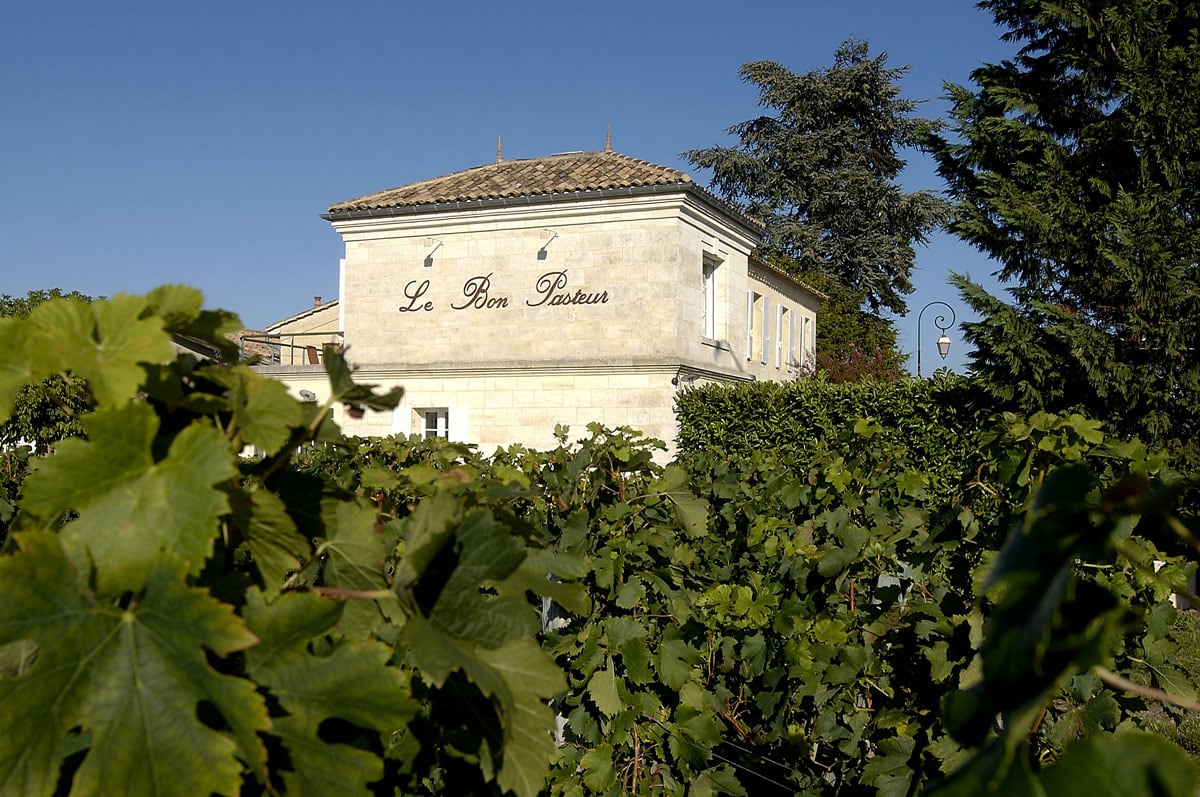
Château Le Bon Pasteur, in Pomerol, where Michel was born
You have made wines in all or most of the world's wine regions. You have never tried to make wines in Burgundy
No, I could have, but the problem with Burgundy is that they are very small estates, and then there are also logistical problems, between Bordeaux, where I live, and Burgundy, there are 600 kilometres.... Making the journey to visit a small Domaine that has a few dozen barrels and then five hours to return is not a viable option. For me, wine production is a job, it's my business, I have to optimise my time. I would like to, but I have no open dossier on Burgundy. When I come to Italy, for example, I pass by four to five wineries in sequence: yesterday I was at Biserno, today at Ornellaia, tomorrow at Caprai and then I'll be at Monteverro, for us they are important customers. This is, essentially, the motivation.
In Italy you work mainly in Tuscany... Perhaps because there is something in common with Bordeaux?
Yes, of course... even if there is Umbria... Anyway, the Tuscans were the first to come looking for me, the first was Lodovico Antinori for Ornellaia. After that I worked for Ruffino for a long time, with Ambrogio Folonari, where I made Cabreo, then Chianti Classico Riserva Ducale... Today, with Julien Viaud we follow Biserno. Then came Monteverro.
The Rolland style: is it designed for the American palate, for consumers in the New World? Soft, round, fruity and rich wines?
Yes, I hear that. I don't know if there is a 'Rolland style'. I can say that Rolland is a professional with fifty years in the business. Five decades. And Rolland is in full swing. I believe that if his style was not good, professionally he would have died (laughs) a long time ago... So, 'style or no style' is definitely not the issue.
Perhaps his reputation is linked to the reviews of Robert Parker, who has written several times that Michel Rolland is the world's greatest oenologist?
It was really very kind of him to say that... (laughs)
Of course, but all this had consequences on the French, European and international wine scene... The US market is the most important in the world, and so... His choices were geared to pander to the American palate...
The second part of my answer is that when I make a wine - and I love all the wines I make - I believe that you have to make wines that then sell. The best wine is... the one that sells! Wine is an economic good, it is produced to exchange it. And the company that produces it must prosper. It's true, when I started, in the 1970s, the market that was about to explode was the American market. And it is true, I made wines that would appeal to the American palate, but these wines today appeal to the Chinese and Europeans as well. So where is the truth? I don't know, I only know that thanks to positive reviews, such as those of Robert Parker, certainly based on his personal taste, the world of wine has progressed enormously in terms of quality. The world wine proposal today is infinitely better and more interesting than what was on the market forty years ago.
For some you are the guru of oenology, the scientist who changed the face of modern oenology, for others a kind of great Satan, the homologator...
But here it's like in politics, you can't have unanimous consensus. I know, some people see me as the devil, others as a saint... (laughs) I try to be a bit of both...
For many, the role of the cynical winemaker in the film MondoVino brought her more acclaim than negativity...
Ah yes, of course! There is a French adage that goes 'good or bad, the main thing is that it is talked about...'. For me it was a great success...
Can original wines be made in California, or in the case of Harlan, Araujo, Screaming Eagle is it just a matter of applying classic Bordeaux protocols?
Well, they're not bad, are they? (laughs)... However, when we taste Californian wines alongside wines from Bordeaux, it is clear that they are not similar. They are all cabernet sauvignon-based wines, but they are totally different expressions of the grape variety. And then the percentages of cabernet sauvignon in California are higher. In Bordeaux, there are wines with 80 per cent cabernet sauvignon but they are rare, here most are between 65 and 75 percent cabernet sauvignon, then there is merlot, some cabernet franc, some petit verdot. And finally there are the white wines from Bordeaux. In California you can make those as well, but the big Californian reds like the ones we mentioned are 90 per cent cabernet sauvignon. So we have different percentages and a different expression of the grape variety. We are not on similar soils and we have a different climate; certainly, the work in the vineyard and in the cellar is similar, but the origins are different and therefore the wines are different.
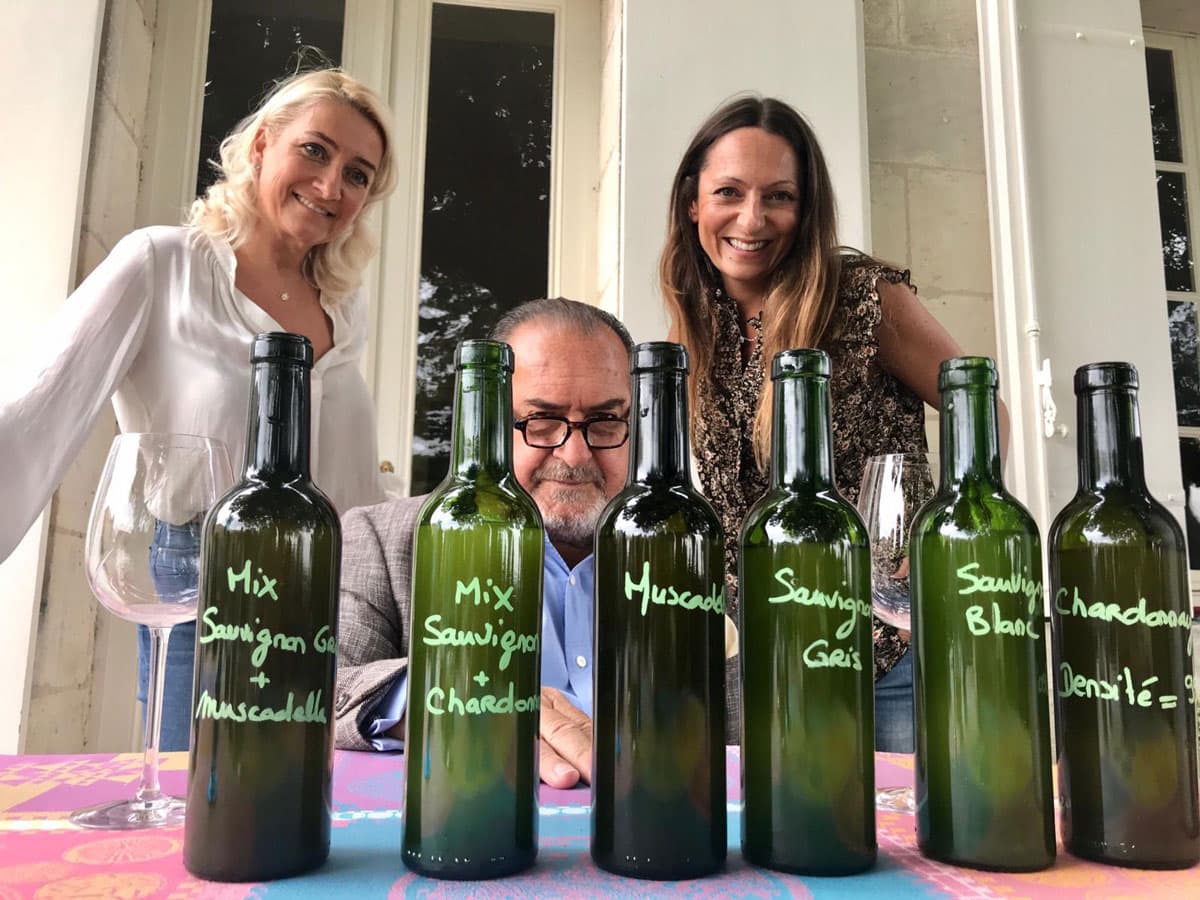
Rolland with his daughters Stéphanie and Marie, both engaged in the family business
For you, how has the consumer's palate changed over the last 20 years?
For me, not much has changed. And I say why. I receive many people in my house, and people from all over the world, and also people who are strangers to the world of wine. Well I have a cellar - I would say an important cellar - and I have a lot of old vintages. So the average consumer today no longer has a wine cellar, and that's because it has become too demanding to manage, even financially. Then there are the thefts... Even in Paris many of my acquaintances have had their most precious bottles stolen. And so people no longer put wine in the cellar. If they have guests for dinner they go down to the wine shop or go to the supermarket and buy wines for the evening. As a result, people drink wines that are two or three years old, and they no longer drink old vintages. When I organise tastings at my house, I let people taste wines that are fifteen, twenty or twenty-five years old. I have never found anyone who says they don't like old vintages. People love them, but they can no longer afford them. Taste hasn't changed then, only the consumer has been forced to change his habits.
Are there any wines or vintages that you consider fundamental in the history of your career?
There is one vintage that unquestionably changed the game in Bordeaux, and that was the 1982 vintage. Then if we are talking about wines that have marked my professional experience, then I would say Chateau Troplong-Mondot in Saint-Émilion, Harlan Estate in California, then Ornellaia and Masseto in Italy, and again Clos Apalta in Chile, one of the iconic wines of that country, and finally the wine of a small company that I love very much in Argentina, Val de Flores, from old malbec vines. In my opinion it is the best wine being made in Argentina today.
There is a lot of talk about alcohol-free wine, will this be the future of wine?
Dear Gambero Rosso, wine without alcohol cannot exist or we must change the definition that has been given by the OIV at international level. Wine without alcohol is not wine.
Has viticulture or oenology changed more in 30 years?
Both have changed, but oenology has progressed before viticulture. Oenology started earlier. In the 1970s, when I started, the main thing was to have clean cellars. It seems strange today to think that people made wine in rooms that were not clean, at that time it was essential to clean the wine vats, the pipes, you had to make the tools and equipment in the cellar aseptic. At that time, many wines had major defects, excessive volatile acidity, bacterial and abnormal yeast attacks; therefore, we first worked to improve the winemaking conditions. Then we realised that if you didn't have a level of raw material, you couldn't make important wines. And so we concentrated on the vineyard to improve the quality of the grapes. Today we are at a very good level in both the technical and oenological aspects, but this is a process of continuous improvement. Every day we discover something new and move forward.
Natural wine boom: ancestral practices or a return to the origins of wine history?
A return to basics? Yes and no...
Is it a form of protest against oenologists?
No, I don't think so, the problem is that there is always a need for change, for telling new stories. So let's separate the speeches. What is natural wine? By definition all wine is natural, it comes from a natural phenomenon of fermentation of sugars by yeasts. Grapes ripen in vineyards naturally, fermentation is a spontaneous process. The Greeks used to add aromas and spices to cover the defects in their wines, and to prevent the wine from turning into vinegar. If we did that today, what would people say? That it is natural wine? These are all nice stories to attract the consumer. It is another thing to make wine from sustainable viticulture, which thinks about the environment and the future. Because it is certain that in recent decades viticulture, like all agriculture, has tended to use too many treatments. Even preventive treatments were used when there was probably no need. Today, treatments are much more reasoned. The climate has changed. Today, treatments are much more reasoned. The climate has changed. Let us take note of this. Global warming has naturally led us to a drastic reduction in treatments as vine diseases are less aggressive. But there are vintages like this 2023 where the situation is different: rain and humidity, then sun... we call it a fungal year, and so there is a need to do treatments. But by now a collective conscience has awoken in all producers, and there is no longer anyone willing to do treatments if they are not strictly necessary, unlike in the past.
What about biodynamics? What do you think?
Biodynamics uses other techniques, rests on different concepts, which I do not criticise at all. I have many friends and several clients who work in biodynamics. It is a difficult technique to master, you have to have a lot of knowledge and people who are genuinely passionate about the subject. When you have to intervene in the vineyard, you have very narrow windows, and you may have to enter the vineyard at seven o'clock in the morning on a Sunday: more than technical difficulties, in the end it's about human problems... That's the most complicated aspect. Sometimes the practices are a bit curious, like burying manure horns in the four corners of the vineyard, but I have a lot of respect for those who practise it.
Cement vats, amphorae, macerated white wines... Are these the new frontiers of contemporary oenology?
Complicated question... Let's start with concrete: I am very much in favour of it. Wood is an excellent container for wine, but it is expensive, difficult to keep healthy and clean, and after a few years you have to change it. Technically and economically it is a complicated story. But it cannot be eliminated, or at least not completely. After wood comes cement, because it has excellent thermal inertia. And temperature constancy in fermentation is a crucial aspect for quality. Cement in this respect is excellent. The third material is stainless steel, which has gone through two eras in history. In the first, that of the thin-walled vats: it was almost impossible to control the temperature, the outer part was always colder than the inner part, and there were problems with stuck fermentations... Today we have vats with double walls, refrigerated cavities, which allow perfect temperature control at all stages.
And what about the amphorae?
Amphorae? I have nothing against amphorae (laughs), just that sometimes they are difficult to control, sometimes they are too porous and let a little too much oxygen through... You have to know them well and handle them well, it's complicated but interesting. But it is often a marketing argument. In a winery that makes 800,000 bottles, having four amphorae means having a minimal and unnoticeable impact on the final product... It's often just talk...
Aren't there wine cellars that only have amphorae?
I only know of one: in Pauillac there is Château Pontet-Canet, which matures 50% of its production in amphorae... So here we can talk about influence on the final result... Otherwise it's just talk... There are those who place amphorae in the four corners of the cellar to say that they have them... But let's be serious... Anyway, I have nothing against amphorae... As long as you choose the right terracotta and the right capacity for each wine...
Don't you make any wine in amphora?
I have amphorae everywhere, at least two per cellar (laughs)... if you come to Chateau Fontenil, in Fronsac, you can see two concrete vats and two dolia. Visitors are enthusiastic about them (laughs) and like to take pictures of themselves near the amphorae... Here we make 50,000 bottles and we have two amphorae... which is equivalent to 0.01 of production... Macerated whites? I have respect for those who make them (laughs). Orange wines are not in my league, so I haven't felt like making them so far. Do you review them in the Wine Guide? Does anyone have Three Glasses?
Yes of course, and there are territories where it is a widespread practice, some are even awarded, they are very interesting wines...
Ah, well, I am curious to taste them.
Name three wines you love but have not made yourself... maybe a white, a red and a sparkling wine...
Among whites I really love Chardonnay, so I would say the Meursault of Comtes Lafon, really good. A red wine that I didn't make... and that I like? There are so many! Excluding the obvious big names, I would definitely say Léoville-Las Cases in Saint Julien. A truly elegant red. A foreign wine? Well, there aren't many really good ones (laughs again)... Maybe Colgin in California.
And for the bubbles?
I love sparkling wines... I don't know the Italian scene very well, but I see that Prosecco Doc is doing good numbers in France, over 40 million bottles... A figure that really impressed me. I love Champagne. Good red wines outside France are produced all over the world, from Italy to California, and I like a lot of them. But when it comes to bubbles, Champagne is unrivalled. I drink them all with pleasure, and if I want something special I pop a Salon or a Clos du Mesnil. I like Blanc de Blancs.
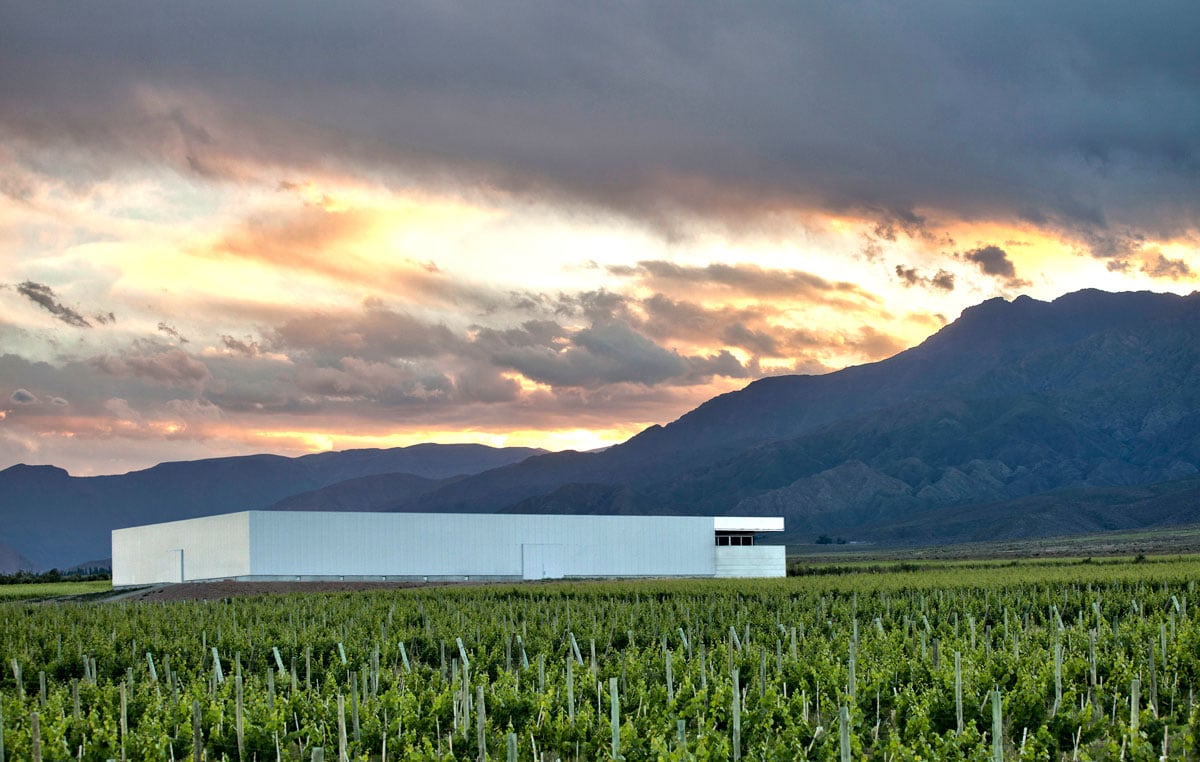
Bodega Rolland in Argentina, Rolland's "new" adventure
The New World: you make wine in Chile, in Argentina you vinify Malbec, which in Bordeaux is certainly not an important variety, but in Argentina this grape has become a star.
It is a grape that originated in Bordeaux, where it has almost disappeared (there is still some left) and for very simple reasons: malbec has never perfectly adapted to the Bordeaux climate, because it does not like rain and is very susceptible to rot. It is a very complicated grape if you want to make top wines. Argentina is the only country in the world where great wines can be made from malbec, and this is due to its 'hyper continental' position where the vine-growing areas are close to the Andes cordillera, and therefore there is no oceanic influence, neither from the West nor from the East. Here, Malbec has found its ideal location. In France, the most interesting Malbecs come from Cahors, which has a much more continental climate than Bordeaux, we are 250-300 kilometres from the coast, the influence of the ocean is minimal.
Now we are in Montefalco: a special wine is made here, Sagrantino. You have totally rethought the production process. Was it a real challenge?
Yes it is true, I have been working here for years, and we have managed to make an elegant red that blunts the powerful impetuosity of this particular grape, its rusticity. Last month, I tasted a bottle of 2006, the first vintage we 'touched', even though we did not make the wine ourselves. It was a rich, elegant, complex wine, but it took 17 years to tame it. Sagrantino will never be a subtle, threadlike wine, but I believe we managed to give it a more modern edge, to make it more enjoyable and seductive even with a relatively shorter maturation, despite its richness and tannins. We sought a new elegance and balance but without distorting its essence.
What are your plans for the future?
Keep working but take it easy. The thing I am most passionate about in a company is making wine cuts, tasting barrel by barrel, barrique by barrique to arrive at the final amalgam, which changes every year. I sold the majority of Rolland Consulting and the laboratory to my collaborators, Julien Viaud, Mikael Laizet and Jean-Philippe Fort. Now the company is called 'Laboratoire Rolland & Associés' and includes the consulting business (250 in more than 15 countries, ed.) and the analysis laboratories (more than 500 clients, where we analyse everything from musts to wines and soils). My wife Dany and I only have a small share. I have companies in Bordeaux and Argentina, which is my second home. I will devote more time to myself and family but... I still enjoy working!
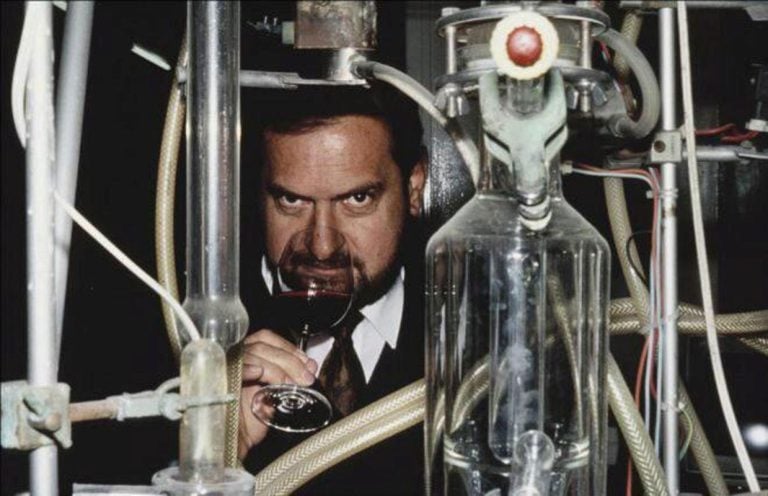
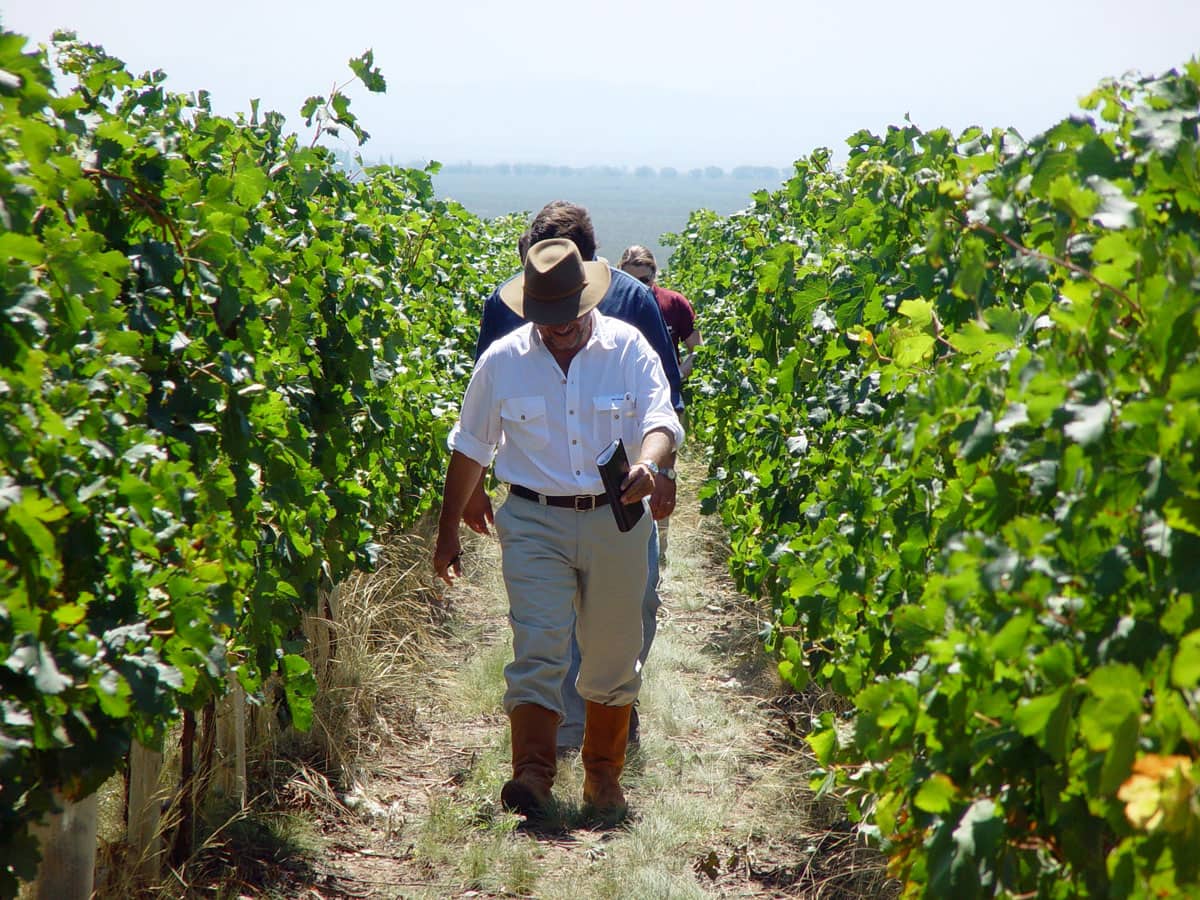
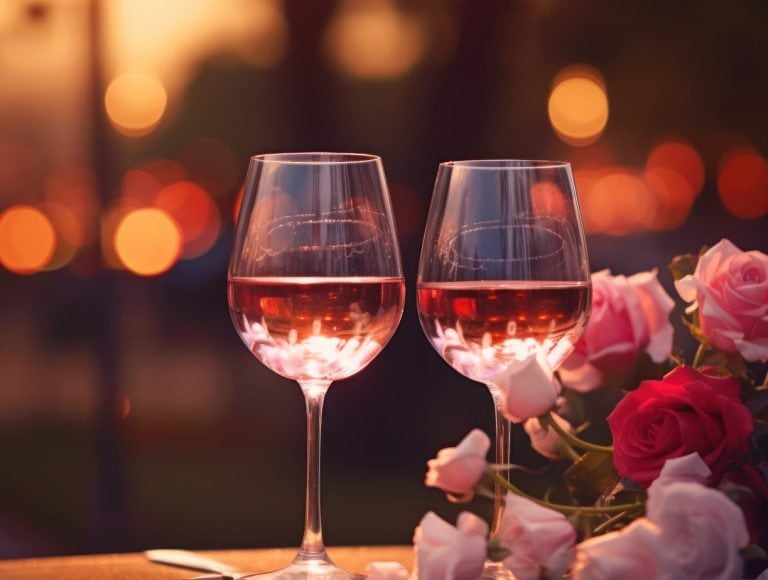 In Milan, the largest fashion street celebrates rosé wines with Rose Rosè
In Milan, the largest fashion street celebrates rosé wines with Rose Rosè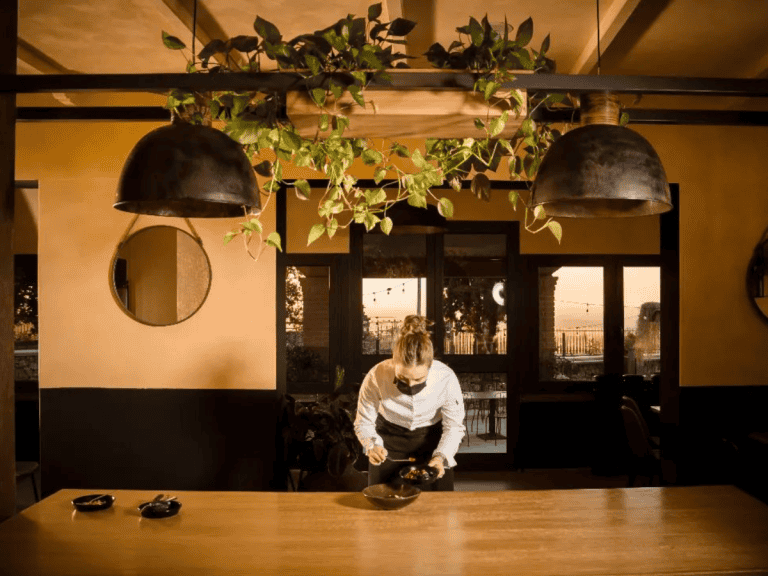 Smiles, creativity, and some youthful mistakes. How dining at Portale 21 in Marino, the bet won by Valentina Pacifici, looks like
Smiles, creativity, and some youthful mistakes. How dining at Portale 21 in Marino, the bet won by Valentina Pacifici, looks like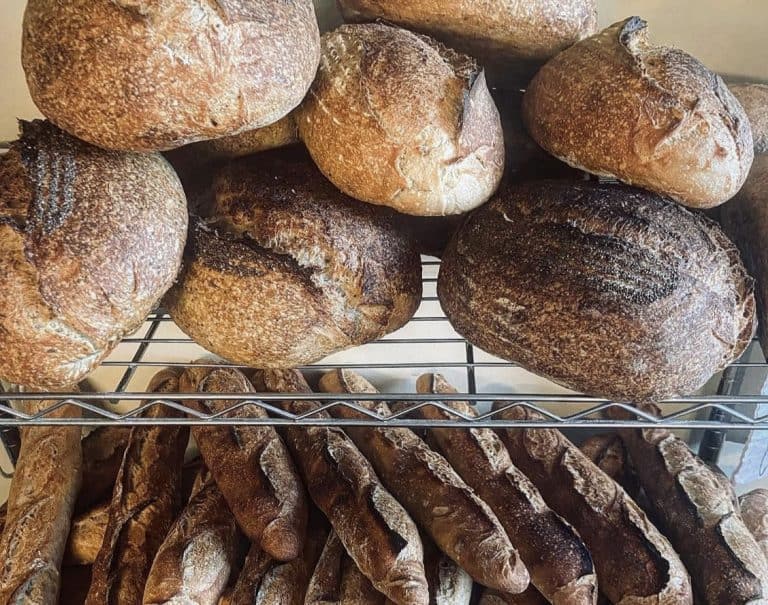 In Aprilia, a contemporary bakery has been born with French yeasts, baguettes, and ancient local breads
In Aprilia, a contemporary bakery has been born with French yeasts, baguettes, and ancient local breads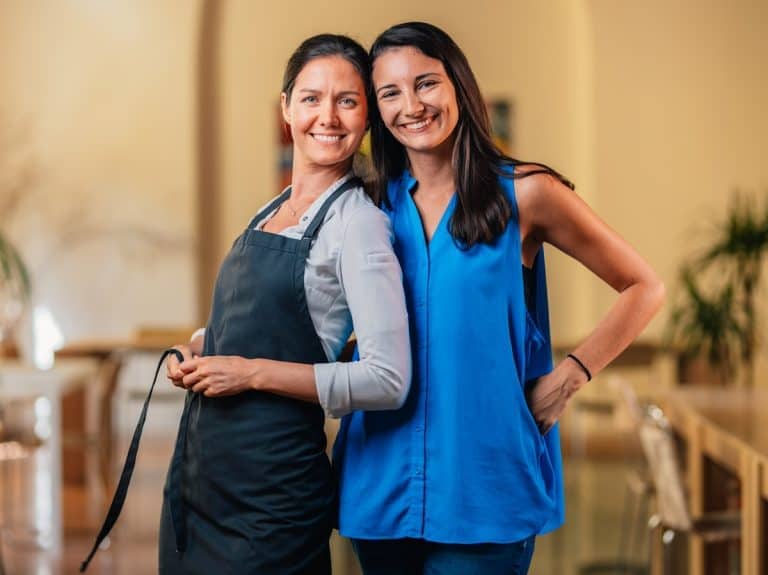 In Modena, there is the world's best social restaurant. Here's what it is
In Modena, there is the world's best social restaurant. Here's what it is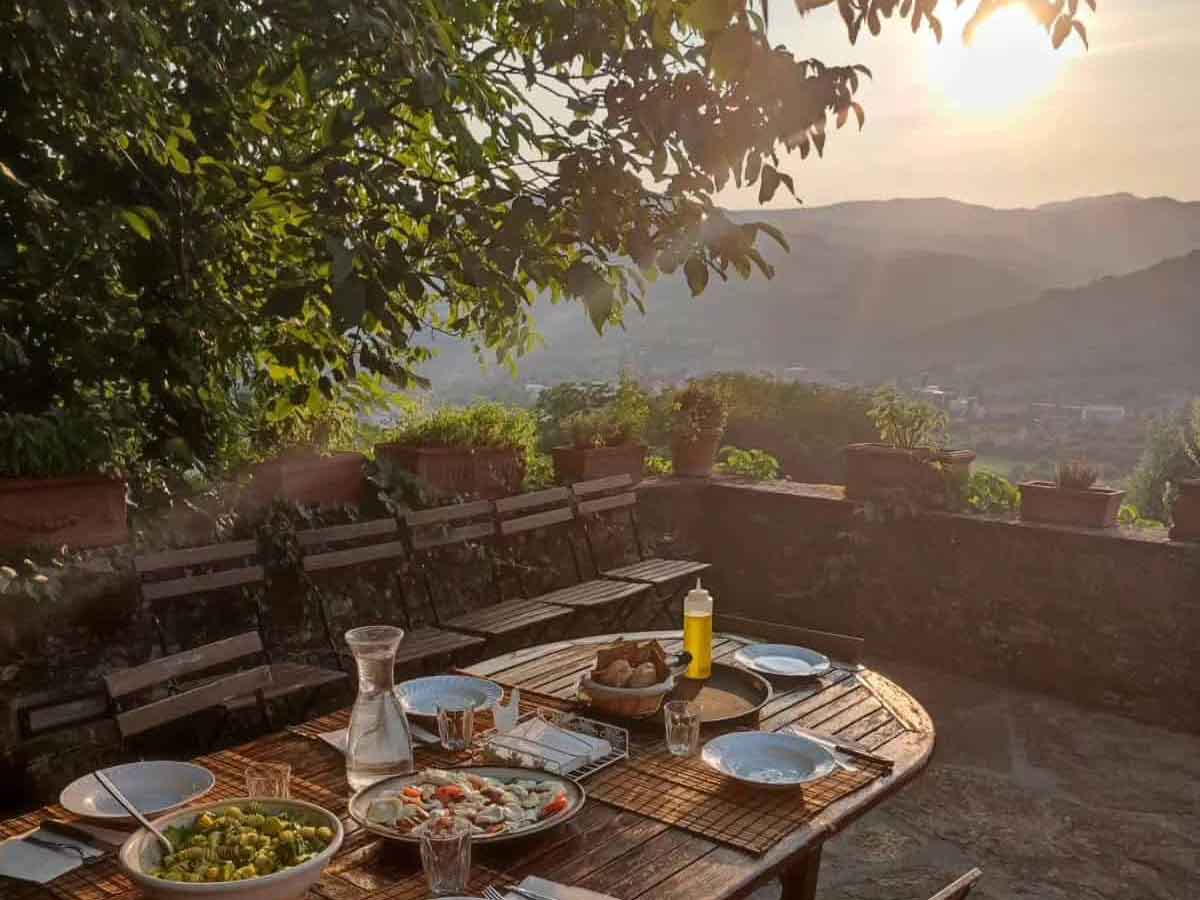 Where to eat in Florence and surroundings. The best farmhouses chosen by Gambero Rosso
Where to eat in Florence and surroundings. The best farmhouses chosen by Gambero Rosso